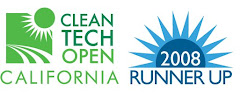Thomas Friedman: Show Us the Ball
Representative John B. Larson, chairman of the House Democratic Caucus, has circulated a draft bill that would impose “a per-unit tax on the carbon-dioxide content of fossil fuels, beginning at a rate of $15 per metric ton of CO2 and increasing by $10 each year.” The bill sets a goal, rather than a cap, on emissions at 80 percent below 2005 levels by 2050, and if the goal for the first five years is not met, the tax automatically increases by an additional $5 per metric ton. The bill implements a fee on carbon-intensive imports, as well, to press China to follow suit. Larson would use most of the income to reduce people’s payroll taxes: We tax your carbon sins and un-tax your payroll wins.
People get that — and simplicity matters. Americans will be willing to pay a tax for their children to be less threatened, breathe cleaner air and live in a more sustainable world with a stronger America. They are much less likely to support a firm in London trading offsets from an electric bill in Boston with a derivatives firm in New York in order to help fund an aluminum smelter in Beijing, which is what cap-and-trade is all about. People won’t support what they can’t explain.
Michele Bachmann: Lost jobs, big hikes in your bills -- that's cap-and-trade
President Obama has repeatedly said he will not raise taxes on low- and middle-income families, yet his policies do not match his rhetoric. Take for instance, a new tax he has proposed on the use of energy. It's called cap-and-trade or, more appropriately, cap-and-tax. The tax would require energy producers and businesses to pay to emit carbon emissions in the hope of reducing greenhouse gases.
The Democrats need the revenue this will generate to pay for their expensive agenda. But getting it this way would be shortsighted because it will cost far more in the long run than it will bring in. While the president originally estimated that implementing this plan would cost $646 billion over eight years, his deputy director for the National Economic Council, Jason Furman, recently stated that it could cost up to three times that -- bringing the cost closer to $2 trillion.
Any way you look at it, it's low- and middle-income Americans who will pay dearly for this. According to an analysis by the Massachusetts Institute of Technology, the average American household could expect its yearly energy bill to increase by $3,128 per year. Using an analysis by Peter Orszag, President Obama's budget director, that number would be closer to $4,000.
MIT Scientist: Republicans Misusing My Climate Change Paper
Apparently from this M.I.T. study, which found that a cap-and-trade plan along the lines of the one envisioned by the Obama administration would raise $366 billion a year at the outset. In reality, many of those costs will be passed on to consumers, but those costs will be offset by rebates and conservation and efficiency measures and the transition to other fuel sources and so on. In fact, the exact same study concluded that the actual costs to consumers would begin at $31 a year--or $79 per family.
Gilbert Metcalf in Technology Review
A leading economist explains why a carbon tax is the best strategy for cutting greenhouse gases and the use of fossil fuels.
The MIT Joint Program on the Science and Policy of Global Change






No comments:
Post a Comment